How Swati Made Menstruation Not Only More Hygienic But Also More Profitable For Rural Women
From using ashes to dirty clothes, women in rural India put their health at immense risk during menstruation. Swati Bedeker not only spread awareness about using sanitary pads but also enabled rural women to make a living out of it. To add to it, she got even men interested in the idea! Here is how she did it.
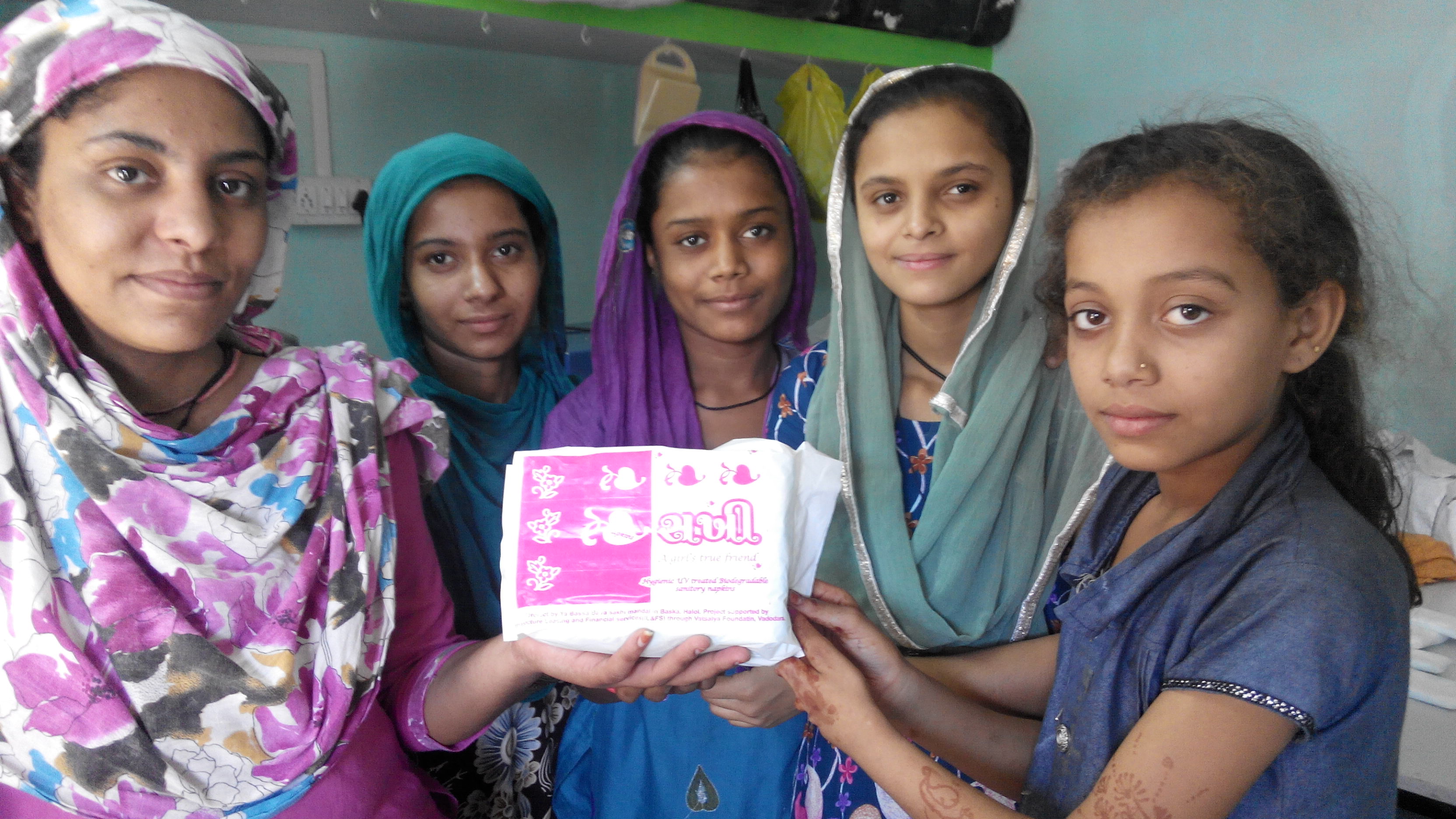
From using ashes to dirty clothes, women in rural India put their health at immense risk during menstruation. Swati Bedeker not only spread awareness about using sanitary pads but also enabled rural women to make a living out of it. To add to this, she got even men interested in the idea! Here is how she did it.
Menarche – the onset of menstruation for young girls that signals the beginning of her journey towards motherhood. But is this phenomenon celebrated? Not in India. It’s a taboo period wherein a young girl or woman is considered to be “impure” and cannot touch anything lest it becomes contaminated. Swati Bedekar of Vatsalya Foundation, Vadodara decided to change this.
What does menstruation mean in rural India?
We may assume that menstrual hygiene is a given thing. For most of the women who can afford sanitary pads, this phase in their lives does not impact them, their status or work. But the situation changes for illiterate, poor women often steeped in upholding the taboos rather than taking care of their health and well being. White discharge and infections result from poor knowledge and improper practice of menstrual hygiene, impacting the ever work-loaded women.
Vatsalya Foundation began their work focusing on menstrual hygiene by chance. The Foundation was assigned a project in the Panchmahal District in Gujarat to conduct science and math modules to improve the educational levels of students in 500 government schools. The trainers, including Bedeker observed that girls remained absent for five to six days every month. This observation led the team to consult parents. The reason for absenteeism was menstruation. Period.
On delving deeper into the practices of menstrual hygiene, Bedeker learnt about a few startling coping mechanisms that women adopted. Bedeker found out that the women would use a leaf with mud which was tied around their waist. Synthetic cloth pieces, or any cloth pieces which were not even clean, were used. The other bigger issue was disposal of these used cloth pieces. In turn, the women did suffer numerous episodes of infections which resulted in loss of work, and if they were able to reach a doctor then the doctor bills.
What was Swati’s solution?
Bedeker decided that Vatsalya Foundation must look into this critical aspect and support the women in practicing correct menstrual hygiene. Mere education was not going to help. The women needed to adopt a secure and a hygienic method to deal with their menstruation. Bedeker studied the model set up by Arunachalam Muruganantham of Coimbatore. He had developed a production unit to manufacture sanitary pads that were hygienic yet low cost, using wood pulp to absorb the menstrual flow.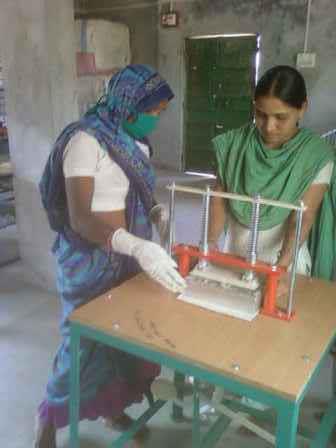
Bedeker used the existing Sakhi Mandals (Self-Help Groups) to launch an enterprise wherein the women members would manufacture sanitary pads. This would allow women to earn and address an issue close to their hearts. The men were also interested as there was money to be made. However, Bedeker’s Vatsalya Foundation focused on women and their needs. The women wanted a livelihood option near their homes in the villages – better than migrating to cities to work at construction sites.
The government’s tribal department provided the initial Rs.3 lakh grant to launch this enterprise. The first unit was set up at Chottapalli village in Limkheda block of Panchmahal district, Gujarat. And ever since, this initiative has progressed from strength to strength. Sakhi operates as an independent company.
There are five units producing 1,00,000 napkins per month. The sanitary pads are sold under the “Sakhi” brand. Each pack contains 10 sanitary pads and is priced at Rs.20.00 per pack. In terms of the break-up, for every pack sold, Rs.12.50 goes to buy new raw material, Rs.5 is paid as labour while Rs.2.50 goes into the bank as savings. The women members are paid according to the number of sanitary pads they produce. It’s a performance based livelihood.
Have you taken the Hygiene Bucket Challenge yet?
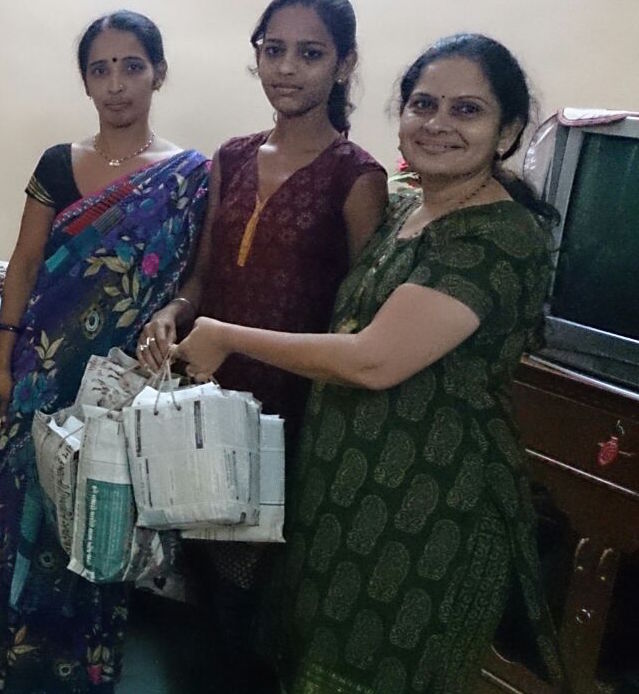
Recently, Vatsalya Foundation launched the “Hygiene Bucket Challenge” motivated by the ice bucket challenge. Institutions housing girls – be they visually challenged or physically challenged, as well as housemaids were the target recipients. The challenge was to pick up one bucket worth Rs.250.00 which would provide the recipient with a year’s supply of sanitary pads. Nominations for the challenge followed.
Using the social media tools such as Facebook, Vatsalya Foundation received a huge support. Events were organised in Vadodara, Mumbai and Ahmedabad. In Vadodara, 1000 such hygiene buckets were purchased and donated. Also, in Vadodara and Ahmedabad, the recipients of the hygiene buckets were young visually challenged girls. In Mumbai, apart from celebrities, other icons were women who had overcome their disabilities or circumstances and had made their life count.
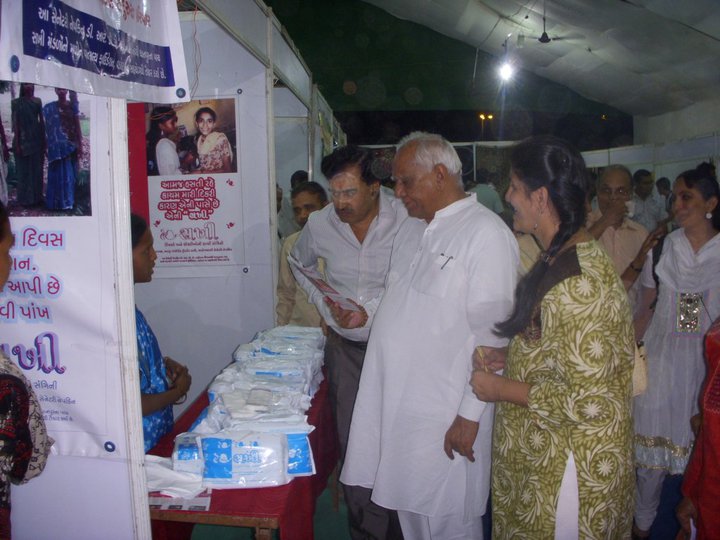
This made the event important and provided the right impetus. Nelson Deb from Eco Hub Small Industries from Bokakhat, Assam has picked up this idea and has launched a hygiene bucket challenge for young girls and women in Assam. While Shivaja Prabodh has made this challenge poplar in Bengaluru.
What happens in the end?
Bedeker’s husband, a textile engineer, is also cued into this issue. He has been instrumental in developing an innovative low-cost incinerator for the safe disposal of used sanitary pads. Using clay and pottery techniques, he designed a compact, unassuming incinerator for Rs.1,500.00. The incinerator has a low value for thieves and vandals hence will remain safe. Yet from the women’s perspective and from managing waste, this incinerator carries a huge value and is a handy device.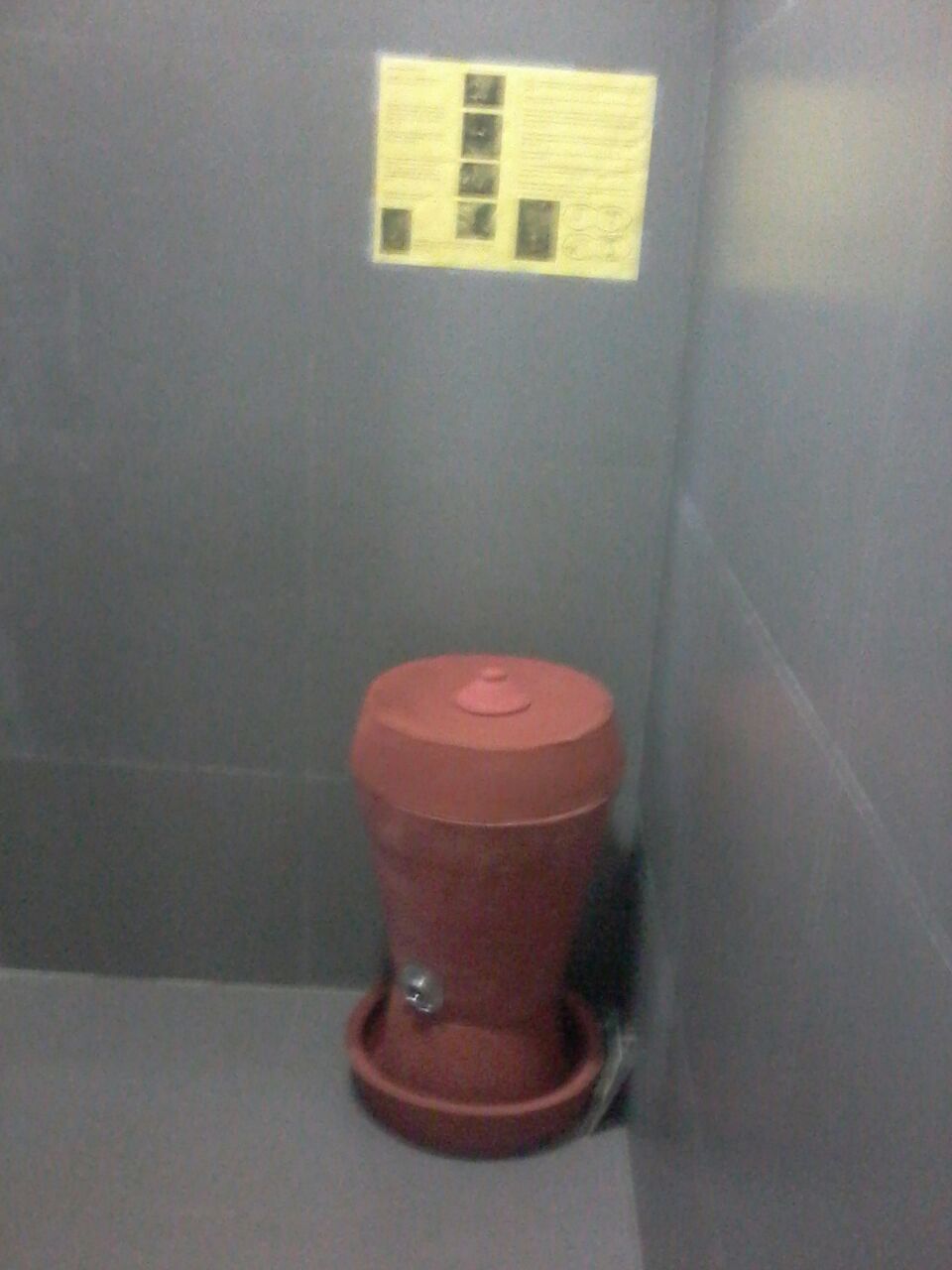
Bedeker has been able to utilise an opportunity to provide livelihood as well as ensure menstrual hygiene for rural women by creating a complete social enterprise model that can be adopted anywhere – especially in India. Now, menarche is truly a beginning to good things for many young girls and women.
To contact Swati call: 09824058675
Like this story? Or have something to share? Write to us: [email protected], or connect with us on Facebook and Twitter (@thebetterindia).
This story made me
- 97
- 121
- 89
- 167
Tell Us More
We bring stories straight from the heart of India, to inspire millions and create a wave of impact. Our positive movement is growing bigger everyday, and we would love for you to join it.
Please contribute whatever you can, every little penny helps our team in bringing you more stories that support dreams and spread hope.



















